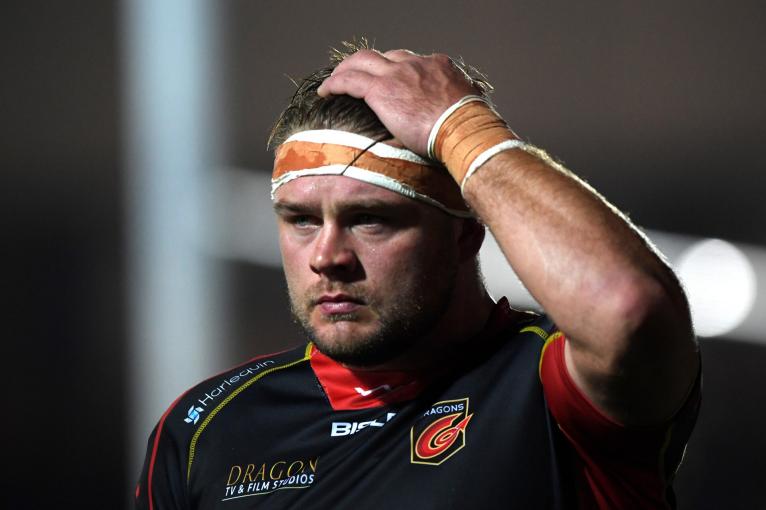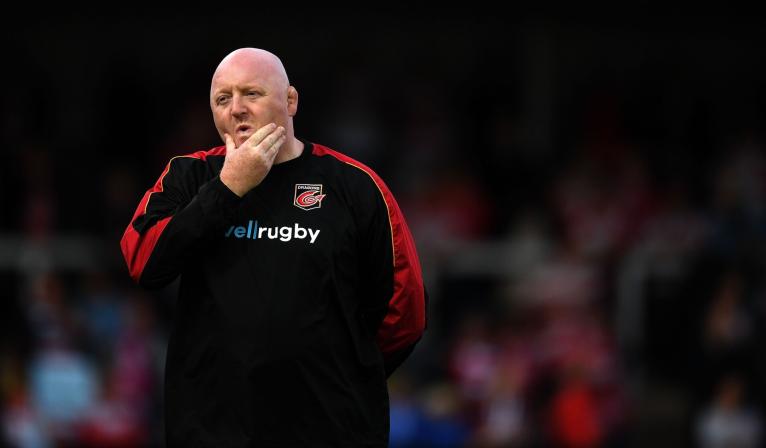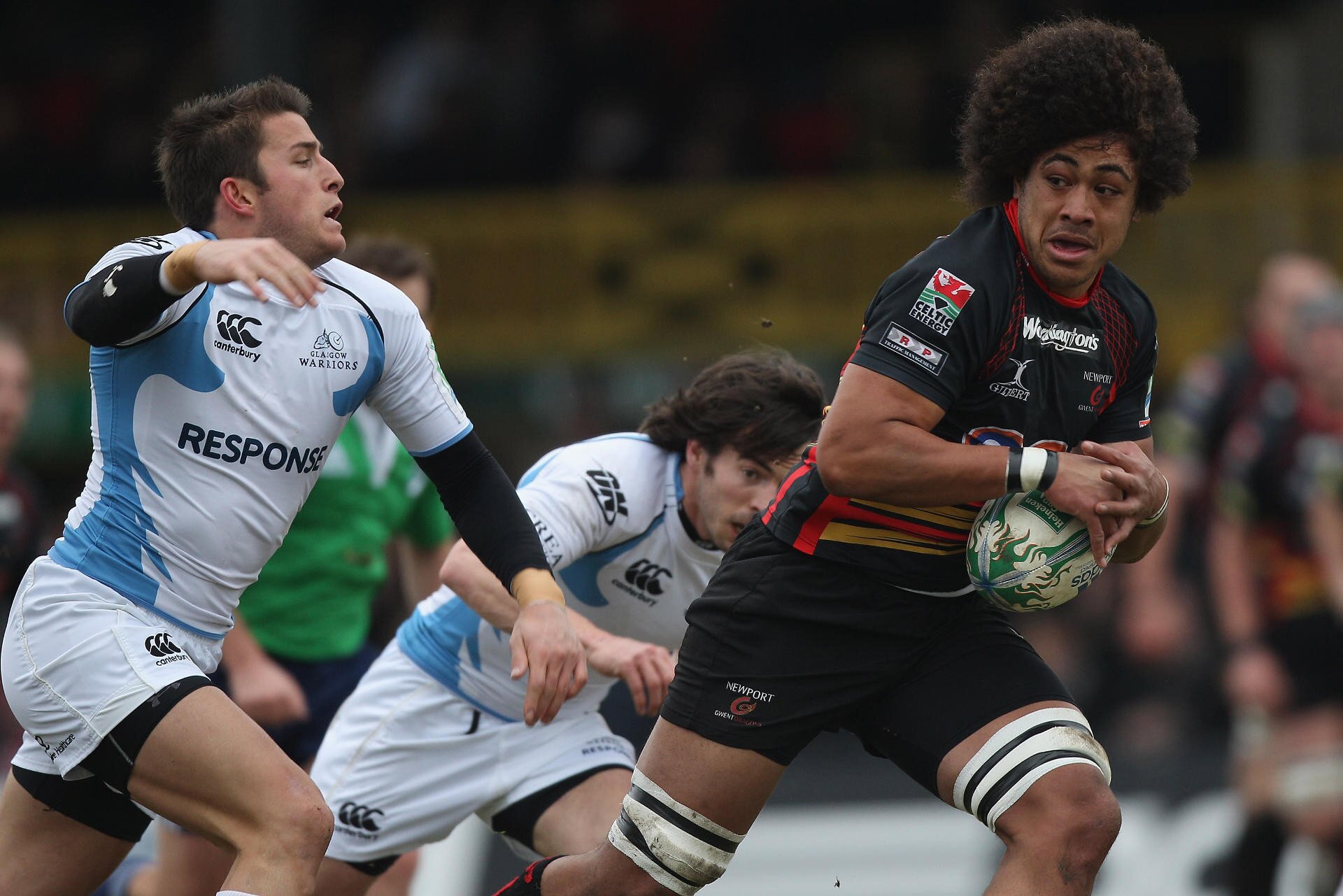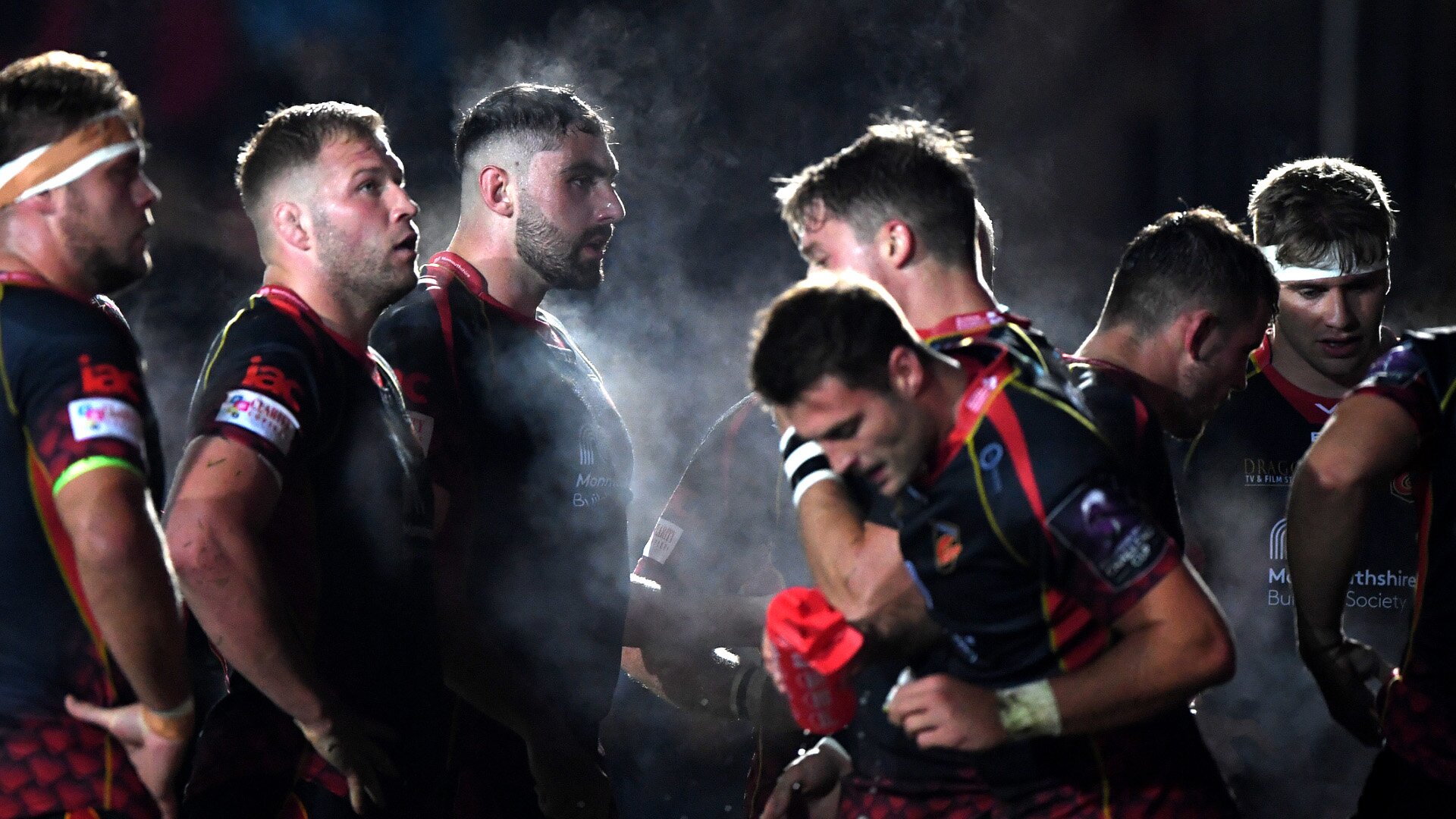'I don't think we've ever had anybody who's left us as a star player that ever came back'

When Paul Turner was Dragons head coach he would often commute to Gwent from his family home in St Albans, in the south-east of England.
Those familiar with the journey will know that as the M4 motorway winds towards the River Severn, cars are taken over the crest of a hill and a view of South Wales stretches before them. From this vantage point Turner felt empowered to solve his region’s ills.
“But the nearer I got to the Severn Bridge there used to always be a big, black cloud that appeared over everything,” he told RugbyPass.
“I just used to drive head-on into that… [when you’re] driving around, you can reflect and get your priorities and think what you’re going to do.
“But as soon as I got there, it was things I just couldn’t even attempt to solve.”
Continue reading below…
It is almost eight years since Turner’s acrimonious departure from Rodney Parade. In his final full season, the Dragons beat Leinster, Munster and Ulster at home to finish six points off a place in the end-of-season play-offs.
Turner was named Magners League Coach of the Season. “I felt at the time we punched above our weight,” he said. “It’s something that you’ve seen wither away over the last couple of years and it’s just given fuel to the people who are anti-regional rugby.”
Dragons supporters yearn for the days in which they won their home games and were competitive on the road, and this week the skies above the region’s Caerphilly training base remained as gloomy as ever.
Bernard Jackman, the region’s fourth head coach since 2011, was relieved of his duties by chairman David Buttress on Monday evening, less than 18 months into a three-year contract.
Heavy defeats to a below-strength Leinster and Northampton in the past fortnight proved particularly damaging, but his fate was ultimately sealed by a return of just 11 wins, and 31 defeats, in 44 matches in charge.

It would be almost impossible for a coach in any sport to keep their job with a win ratio of just 25 per cent. But debate surrounding the Dragons will always be more nuanced given the size of budget, the 2017 takeover by the Welsh Rugby Union (WRU) and its struggle to galvanise a disparate supporter base in Gwent.
Jackman had made some headway in that last regard, getting out into the county to visit clubs in an attempt to foster closer links and support for the rebranded region.
That work could not save him from the sack but there was genuine shock among the playing group when they were gathered together to be told the news by Buttress on Tuesday morning.
“Bernard has done so much good in the region, he’s really kicked us on and moved us forward,” Dragons captain Cory Hill said this week.
“Personally, I think I’ve come on leaps and bounds on and off the pitch under Bernard.”
Jackman, whose successor will inherit the lowest budget of the four Welsh regions, put pressure on himself almost immediately by stating his was a three-year plan and then urging fans to reserve judgment until this season during a disappointing first campaign.

This term the Dragons sit just a point off the bottom of Conference B despite relatively significant investment in the off-season. Their defence – which has shipped 156 points in the last three matches – is the third most-porous in the PRO14 and having accounted for coach Hendre Marnitz last month it did for the man who hired him too.
It was not an easy decision for Buttress, but as he finalises the appointment of a new head coach, expected on Monday, the ambitious chairman will know the region’s problems are not confined to the man charged with picking the team.
Dragons players have had a busy week. News of Jackman’s departure was delivered 24 hours before a meeting that outlined the WRU’s new wage structure as part of Project Reset, the name given to the new Professional Rugby Agreement between the union and the four regions.
Under the new deal, which rewards regions for success on and off the pitch as well as the number of players in Wales squads, the WRU-owned Dragons will continue to operate on a budget of around £6 million.
That is about £1m less than each of the other three Welsh regions, and means that recruitment is paramount – especially with Wales wing Hallam Amos set to leave Rodney Parade when his contract expires at the end of the season.
It is an area in which the Dragons have struggled recently, despite an influx of 14 players last summer. Ross Moriarty, a fine player, increasingly important for Wales and at 24 someone the region can build a team around, was the headline acquisition.

But there does seem a certain folly to paying him marquee money when your squad already includes Ollie Griffiths, Aaron Wainwright, Harrison Keddie and Nic Cudd – and you are crying out for an experienced fly-half.
“Realistically the back row is one of our areas of big strength,” Ryan Price, treasurer of the Dragons Official Supporters’ Club (DOSC), told RugbyPass.
“So, you could argue that actually spending 10 per cent of your wage bill on a player like Moriarty when you could have invested in, for example, a 10 – there is financial sense to that.”
It is understandable, as Price noted, that the new board would want to sign the biggest name they possibly could. It is telling, though, that they were unable to attract a player in the one position they so desperately crave.
Despite their struggles on the pitch, the Dragons have proved adept at developing players for Wales, providing six players for Warren Gatland’s squad last month. The future looks promising too with their under-18s side currently unbeaten this season.
It is building depth of experienced players in their prime that has proved difficult. For Turner, who has watched from afar since leaving in 2011, it is an issue that none of the players who made their name at Rodney Parade – Dan Lydiate, Taulupe Faletau and Luke Charteris among them – have been minded to return.

“I don’t think we’ve ever really had anybody who’s left us as a star player that ever came back and in good shape,” he said. “That to me poses a huge question mark over your organisation.”
One way to make the Dragons a more attractive prospect to players and fans alike is through success on the pitch.
But as interim head coach Ceri Jones admitted this week, the region finds itself in a “chicken and egg” situation in this regard.
The Dragons missed out on increased funding at the start of the current season as the WRU used the money to plug existing financial holes.
Driving new revenue streams is therefore a priority for both the union and the region’s board, central to which is the redevelopment of the north end of Rodney Parade and the cabbage patch training pitch that sits behind it.
Buttress doubled down on his plans to upgrade the current terrace while building a hotel, offices, conference facilities and a restaurant on the site at a DOSC event last month but the question of whether investment drives results, or vice versa, remains.
That is a pertinent query with work yet to start on the project and the potential six figure annual benefits still a way from being realised.
In light of Jackman’s sacking it is clear that performances on the pitch need to be far more tangible. “We need to have the results to galvanise the region so we need to put our best foot forward to produce performances that the region are proud of,” Jones said.
Connacht provide an example of a club where success on the pitch – in their case winning the PRO12 in 2016 – has driven development off it.
A PRO14 title for the Dragons would be a fairytale to rank alongside Leicester City’s Premier League success. No-one expects such a miracle but a competitive team is vital if the dark clouds that confronted Turner are ever to clear.
“If you look across the board, it’s success that drives engagement, that drives attendances, that in turn drives the commercial revenue side of things – which in turn drives success,” Price said.
Victory over Cardiff Blues in the first of the three festive regional derbies on Friday night would be a good place for the new coach to start.














































































